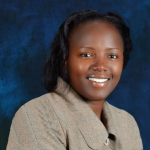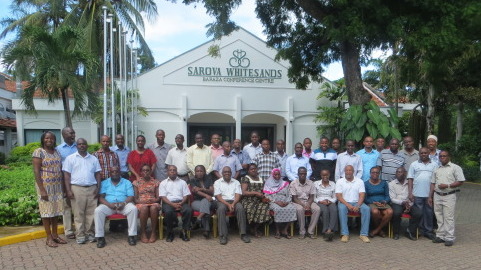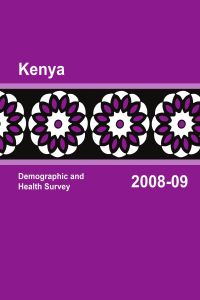DHS Curriculum Training in Kenya
By Peninah K. Masibo
The Demographic and Health Survey (DHS) curriculum is a course that builds the capacity of faculty and students in African universities to understand and use DHS surveys. The course covers a general introduction to the DHS, basic statistics and demographic health terms, indicators in the DHS, conducting a DHS, collecting data on HIV/AIDS and malaria as well as dissemination and use of DHS data.
In May 2014, 40 participants from the Technical University of Mombasa and Pwani University went through a five day training on the DHS curriculum course. Participants were an interesting mix of senior university professors, deans of schools, heads of academic departments, members of various faculties, and graduate students. The participants came from various fields of specialization including medical sociology, public health, environmental science, laboratory management, entomology, epidemiology, and medicine.This range of scholars made it so much fun and generated very hearty debates regarding the DHS curriculum and the applicability of the materials in university teaching, learning, and research.
The DHS curriculum training spurred participants into finding ways of integrating DHS into their university teaching. Applicable fields include statistics, epidemiology, research methods, vector control, parasitology, human nutrition, medical laboratory, HIV/AIDS, research methods, and medical sociology. The graduate students from the Master of Public Health (MPH) programs at both universities found the training very applicable to their course and field work activities.
One of the prominent areas of discussion was the new malaria module. The Kenyan coastal region is a malaria endemic zone, and the module is very relevant for research and academic teaching in the institutions of higher learning. The malaria trivia game made it a very memorable learning experience. Other interesting discussions centered on emerging health issues such as cervical cancer. Participants were thrilled to learn of the inclusion of cervical cancer knowledge questions in some DHS countries.
The training created a lot of interest in learning how to use DHS data for individual and group research activities. Working in small groups made the training very exciting allowing the graduate students to lead discussions along with senior faculty.
The training was well organized with full participation from the two public universities. The Deputy Vice Chancellor (DVC) of Academics, Research, and Extension at Technical University of Mombasa made the official opening speech. She highlighted the importance of DHS in informing health and development policy in Kenya and globally. The closing ceremony and the certificate award were conducted by the DVC of Academics and Student Affairs at Pwani University. He observed the need for participants to apply the newly acquired knowledge and skills from the training to enhance the universities’ training activities.
——————————–
 Peninah K. Masibo is a lecturer at the Moi University School of Public Health, Department of Epidemiology and Nutrition, Kenya.
Peninah K. Masibo is a lecturer at the Moi University School of Public Health, Department of Epidemiology and Nutrition, Kenya.




It was a wonderful learning experience in an ambient environment. The mix of professionals in the training made it rich in depth and experience sharing. Many professionals in the area of public health related disciplines should be motivated to undertake the course
nice article